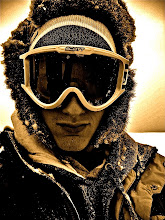This gripping novel by Herman Hesse is the account of an Indian man and his quest from childhood to discover the secrets of life and what his purpose is. Siddhartha, as I quickly discovered, is an excellent Bildungsroman piece of literature. For those who aren't versed in technical terms of literature, Bildungsroman is considered a story is which the character "comes of age". It is a story in which the character goes through significant transformations as the plot progresses. This idea of "coming of age" or Bildungsroman is what inspires the title of this very blog. For I am seeking transformation or a "coming of age" and the plot is my life.
Back to Siddhartha.
The story is based on the experiences of this intelligent and wise character as he wanders through life attempting to escape his very own ego. An ego that Siddhartha considers is the reality of torment in our lives. Hesse pens this dialogue " What is meditation? What is abandonement of the body? What is fasting? What is holding of breath? It is the flight from the ego, it is the brief breakout from the torture of ego, it is a brief numbing of pain and of the senselessness of life." This notion that ego is pain and the idea of escaping ego led me to the realization that this constant pursuit from the ego leads people to so many addictions. As a Scott Peck the author of the bestselling book The Road Less Traveled writes "An addiction is anything an individual routinely uses to escape reality". This escape transpires in detrimental addictions such as alcoholism and drug addictions. Though these are two of the most extreme examples of an ego escape they have become almost normalized in some social circles. Now some argue that they binge drink and use drugs recreationally but I believe that at the heart of it there is a pain that drives an escape from reality. The problem with such escapes is that sobriety always creeps back in and the high always ends leaving one suffocated by an even more painful reality and ego. Personally I feel as though there is no need for such destructive addictions to escape an ego. Instead of trying to escape an ego I find myself like Siddhartha in the realization that it is impossible to escape so instead I embrace it. Because of certain religious beliefs I hold, I find my reality far more than senseless. My life has purpose therefore my ego has hope. This hope drives me forward. Without such hope I would find myself like Siddhartha in a constant search for escape.
Skipping most of the story now (after all you might just want to read it for yourself). I find Siddhartha at the end of his life. He has traveled throughout the countryside of India and met many people. He became rich and lost it all, he lost focus and regained focus on what his mission was. In the end he comes to one final realization. Telling his friend this Siddhartha says "All I care about is to be able love the world, not to despise it, not to hate it or myself, to be able to view it and myself and all beings with love and admiration and awe". For Siddhartha he finally realizes that the world is not a place to escape but embrace. He spent most of his life seeking one thing, Nirvana, only to miss so much in life that was amazing. How many times in my own life have I been after one thing that I forget to love and admire what is around me? Too many times I believe. For even one minute of forgetting or ignoring how amazing our world is and the people in it, that is one minute lost in menial distractions.

